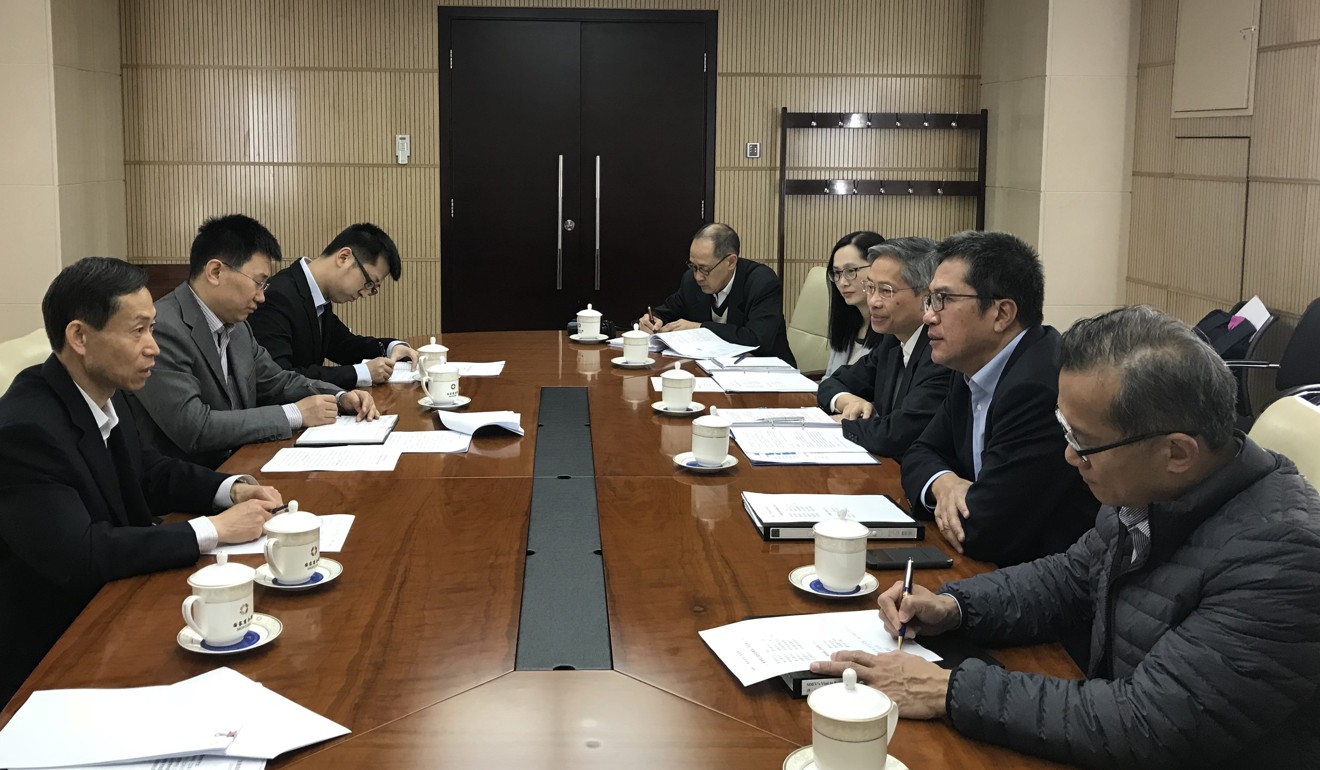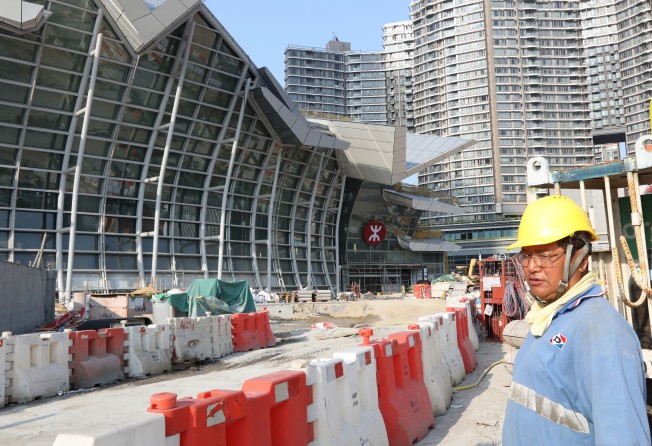
No thanks, Hong Kong construction professionals say when told of easier access to mainland jobs
City’s development chief wants to expand cross-border flows of qualified personnel but industry members say there’s enough work in Hong Kong to keep them busy

Hong Kong and mainland authorities are in talks to allow more construction professionals to work on either side of the border without taking additional tests to qualify, according to the city’s development chief.
Secretary for Development Michael Wong Wai-lun made the announcement on Tuesday, but local industry members said in response they were not keen on working in mainland China because there was still a huge demand for such services in Hong Kong.
Speaking on the last day of his three-day visit to Beijing, Wong said he had discussed with officials from the country’s Ministry of Housing and Urban-Rural Development on plans to expand the scheme in which construction professionals from both sides of the border were mutually recognised.

Under the present reciprocal scheme, six types of construction professionals – general practice surveyors, architects, structural engineers, planners, quantity surveyors and building surveyors – from Hong Kong and the mainland are already allowed to work on either side without the hassle of taking extra qualification exams.
“We discussed with [the ministry] the mutual recognition of professional qualifications for the construction sector to see if there are any ways Hong Kong professionals can be exempted from examinations in getting mainland credentials if they meet certain criteria,” he said, adding that a task force would be set up to look into the matter.
The arrangement would also apply to mainland construction professionals looking to enter the city for work.
The Hong Kong government is pushing for easier access to the mainland for local professionals such as supervision engineers, electrical engineers, building services engineers, landscape architects and land surveyors.
General practice surveyors were the first group of construction professionals to benefit from the reciprocal scheme when it started in 2003. It has since been expanded to other professions.
Over the years, 1,630 Hong Kong professionals have acquired mainland qualifications through the scheme, according to official data. Some 1,764 mainland professionals have obtained Hong Kong qualifications through the same channel.
It’s not just a direct swap of qualifications. The professional bodies from both sides have to at least organise basic training courses, especially on differences in the legal framework
Andrew Kung Sui-lun, who previously led the Hong Kong Institute of Surveyors’ building surveying division, said the institute had been trying to get more surveyors to join the scheme but the response “had been lukewarm all these years”.
“It’s not just a direct swap of qualifications. The professional bodies from both sides have to at least organise basic training courses, especially on differences in the legal framework,” he said.
He also said mainland accreditation was not always needed for Hong Kong professionals to work across the border. For example, he said, there was little incentive for local workers to seek qualifications as supervision engineers on the mainland.
“Building surveyors are mostly employed as project managers on the mainland, and they don’t need any specific qualification other than what they have already received in Hong Kong,” Kung said.
“Supervision engineers, meanwhile, are paid less than project managers, but bear a great deal of responsibility in case fatalities occur.”
Professor Jim Chi-yung, who teaches landscape architecture at the University of Hong Kong, said landscape architects had long been in short supply in the city and there was also not much need for them to seek opportunities on the mainland.
He added that if such architects ended up working across the border, it was because “Hong Kong firms take up mainland projects”.
Separately, speaking before visiting the Ministry of Water Resources, Wong said once Hong Kong’s Tseung Kwan O desalination plant was up and running, it would provide one tenth the supply of drinking water the city imported from Guangdong province.
That would reduce the reliance on imported water from across the border, he added.